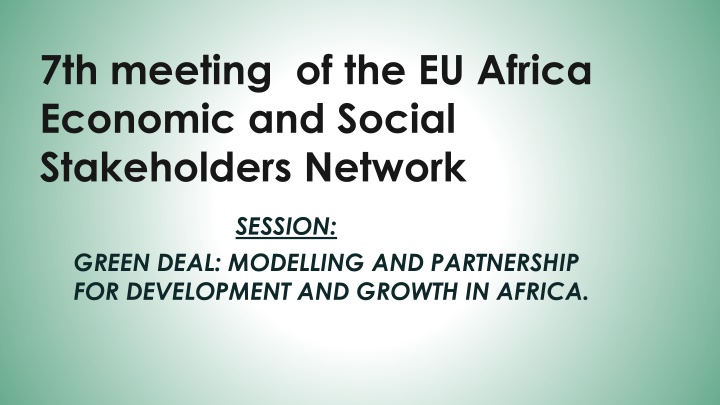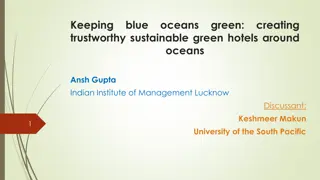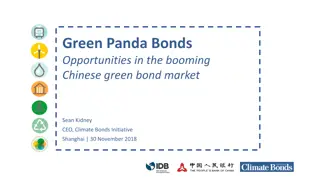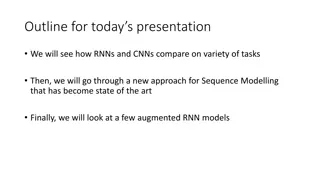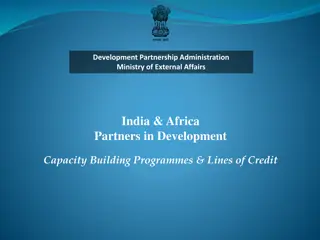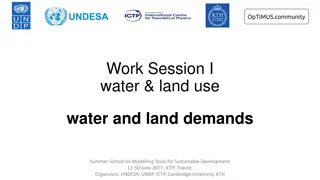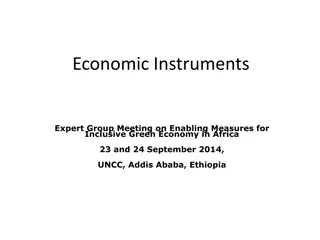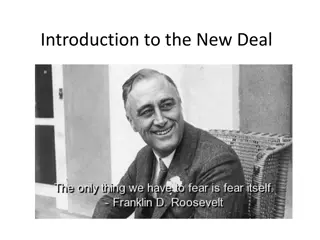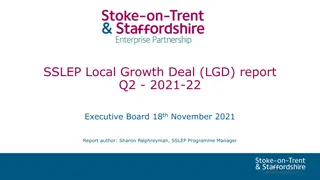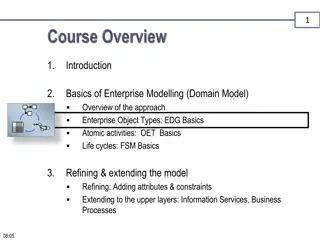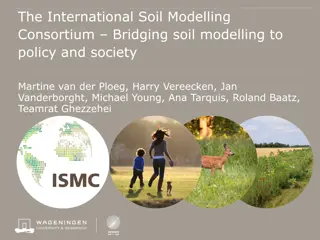Green Deal: Modelling and Partnership for Development and Growth in Africa
SMEs play a crucial role in driving sustainable economic growth in Africa, facing challenges like poor policies, access issues, and climate change impacts. Embracing the principles of Circular Economy offers a path towards a more resilient future, with examples of innovative solutions making a positive impact. Discover how Circular Economy fosters development, tackles SDGs, and empowers SMEs for a sustainable future.
Download Presentation

Please find below an Image/Link to download the presentation.
The content on the website is provided AS IS for your information and personal use only. It may not be sold, licensed, or shared on other websites without obtaining consent from the author.If you encounter any issues during the download, it is possible that the publisher has removed the file from their server.
You are allowed to download the files provided on this website for personal or commercial use, subject to the condition that they are used lawfully. All files are the property of their respective owners.
The content on the website is provided AS IS for your information and personal use only. It may not be sold, licensed, or shared on other websites without obtaining consent from the author.
E N D
Presentation Transcript
7th meeting of the EU Africa Economic and Social Stakeholders Network SESSION: GREEN DEAL: MODELLING AND PARTNERSHIP FOR DEVELOPMENT AND GROWTH IN AFRICA.
THEME: SMEs and Circular Economy for sustainable economic growth in Africa
Why SMEs should lead the way in the sustainable growth of Africa According to Oumar Seydi, International Finance Corporation Regional Director for Sub-Saharan Africa, SMEs account for 90 percent of all businesses in Africa. This reality is underpinned by the fact that Africa s population is being predicted to double in just over 25 years, creating unprecedented market potentials.
Challenges of African SMEs Poor government policies. Low access to public procurement and corruption. Delay in payments for goods and services. Difficulties in obtaining supply for raw materials. Climate change and scarcity of resources.
The three principles of Circular Economy, Design out waste and pollution; Keep products and material in use while preserving their value; Regenerate natural systems. A circular economy will help curb carbon emissions , preserve natural resources and mitigate the effects of climate change.
Circular Economy as a bet for sustainable Economic growth Circular Economy cuts accross Societal, Economic and Environmental challenges. Circular Economy cuts accross all SDGsand will boost the continent s achievements Circular Economy presents opportunity to improve People, Profit and Planet in some major sectors in Africa mainly drived by SMEs namely: Agribusiness, Energy, Construction, Transportation, Packaging, Manufacturing and Textiles.
Two circular economy solutions in Africa Rosham Global Service, A Nigeria based female owned company that has been in operation since 2013. Their goal to give access to clean cooking education, cleaner and energy efficient cookstove, and fuels to a million households by 2025. Read more on: www.roshanrenewables.com The tackle SGD 3,5,7, 12 and 13 Kompost Kitchen a South African based company whose vision is to to divert all South Africa's organic waste from the landfill so that it can be properly composted, and thereby become a valuable soil conditioner. Read more on : www.compostkitchen.com They tackle SDG 2,3,5,6,11,12,13 and 15
Challenges for the implementation of circular economy in Africa According to a survey carried out by the Chatham House and UNIDO Institutional capacity Access to finance Access to technology (industrial symbiosis) Cooperation between different sectors and actors Infrastructure Resistance from incumbent industries (oil, mining etc.)
How Partnership can boost the implementation of Circular Economy in Africa Partnerships and cooperation between Africa-EU can help create . Strong Governance framework. Inter-sectoral collaboration. Set-up funding models that can work for SMEs implementing CE Solutions. Transfer of technology . Incentivise products and services incorporating CE in their processes. Support Academia programmes and research in CE. Strong Global cooperation framework on waste export.
A model of partnership that can be replicated in the Circular Economy field (DIGILOGIC) DIGILOGIC: the first Pan African Digital Innovation Hub focusing on Smart Logistics DIGILOGIC launched in January 2021, with funding support from the European Commission (1,9 million Euros) Create a network of Digital innovation Hub in the EU and Africa focusing on smart logistics
The Benefits of CE for Africas Economic Growth Enhance efficiency of major sectors such as natural resources, exploitation and Agriculture. Create more jobs for the ever growing youth population in Africa. Design out waste and pollution production systems therefore creating a healthier environment. Curbing climate change and helping countries achieve their NDC goals . Increasing the customer and funding portfolio of African SMEs.
Thank you for your kind attention BY JOCELYNE LANDRY TSONANG EXECUTIVE BOARD MEMBER ACEN
